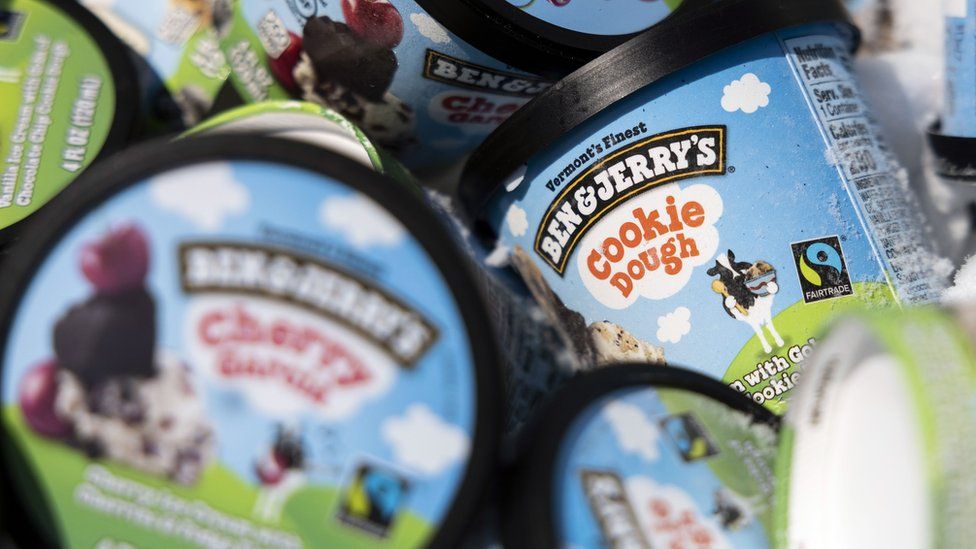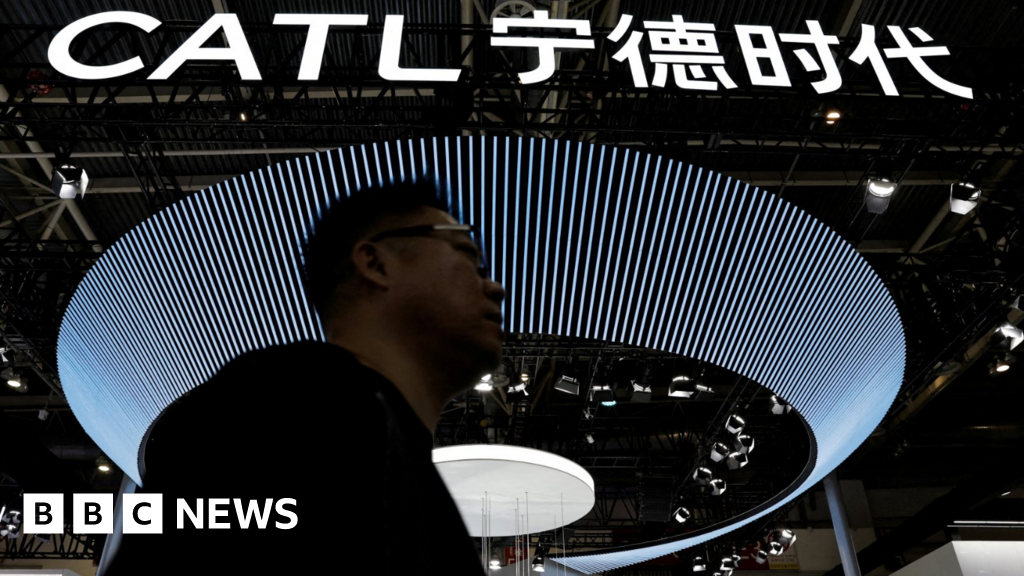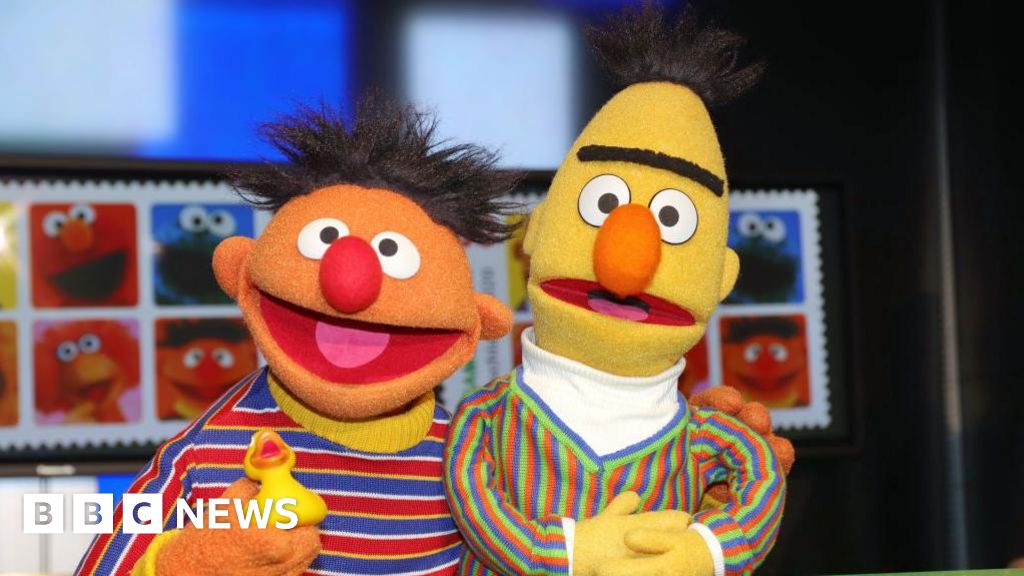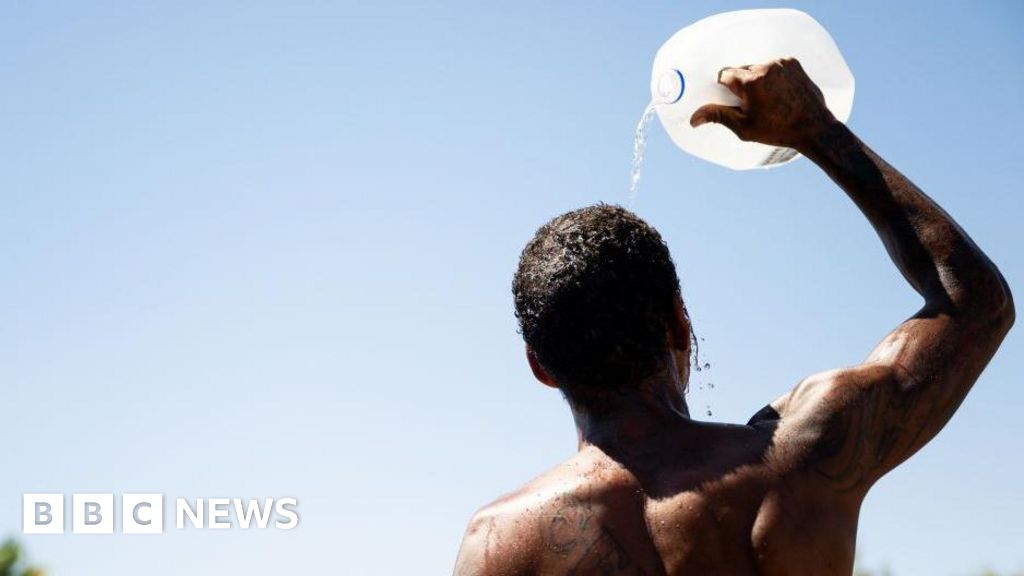ARTICLE AD BOX
 Image source, Getty Images
Image source, Getty Images
The ice cream maker Ben & Jerry's has called for a "permanent and immediate ceasefire" in Gaza, jumping into the heated debates over the conflict.
The move is in keeping with the brand, which previously tried to stop sales in West Bank and East Jerusalem, provoking a clash with owner Unilever.
It comes as global boycotts have hit major US firms such as Starbucks over their perceived support of Israel.
The Ben & Jerry's board said the firm stood up for peace.
"Promoting peace has been an integral part of Ben & Jerry's DNA for four decades," said Anuradha Mittal, the head of the board, who also runs the left-leaning think tank the Oakland Institute.
"Today, Ben & Jerry's Board stands steadfast with that principle by calling for peace and a permanent and immediate ceasefire."
There have been heated debates in the US and elsewhere over how firms and institutions should respond to the brutal attack on Israeli's by Hamas on 7 October, and the response by Israel's military Gaza.
McDonald's and Starbucks have blamed backlash against their brands on misinformation on social media.
Even internal communications have often been fraught.
While many US firms were quick to condemn the Hamas brutality, they have been quieter as the conflict continues.
Unilever declined to comment on Tuesday.
A spokesperson for Ben & Jerry's said the statement calling for a ceasefire was made on behalf of its independent board and it had no additional comment.
"Ben & Jerry's has a long history of supporting peace and peace building," the spokesperson added.
"It is stunning that millions are marching around the world but the corporate world has been silent," Ms Mittal told the FT, which first reported the comments.
Ben & Jerry's is known for its political activism.
In 2000, when it was purchased by manufacturing giant Unilever, it preserved its right to have an independent board to guide its social mission.
It has often taken stances aligned with the left on issues like LGBTQ+ rights and climate change.
In 2021, before the current flare-up in violence, Ben & Jerry's had already provoked one row when it spoke up about the treatment of Palestinians.
It said it no longer wanted its ice cream to be sold in parts of Palestine illegally occupied by Israelis including the West Bank and East Jerusalem.
The stance prompted warnings from the Israeli government and led the prominent Jewish organisation, the Simon Wiesenthal Centre, to respond with calls for a boycott of "anti-semitic ice cream".
Politicians in some US states, including most recently North Carolina, also moved to withdraw state pensions and other money from Unilever over the issue.
Over the objections of Ben & Jerry's, Unilever eventually sold the Israeli branch to a local operator with a settlement that allowed sales to continue under different branding.
Ms Mittal shared her personal views on the conflict in Gaza in December, criticising Israel's action in Gaza. It prompted the Simon Wiesenthal Centre to take to social media again criticising Ben & Jerry's.
The post, which the Wall Street Journal reported was deleted after the newspaper asked about it, was controversial as it carried a picture of Ms Mittal and provoked online abuse directed at her personally.
Activist investor Nelson Peltz, a board member at Unilever, later resigned from his position at the centre.

 1 year ago
34
1 year ago
34








 English (US) ·
English (US) ·